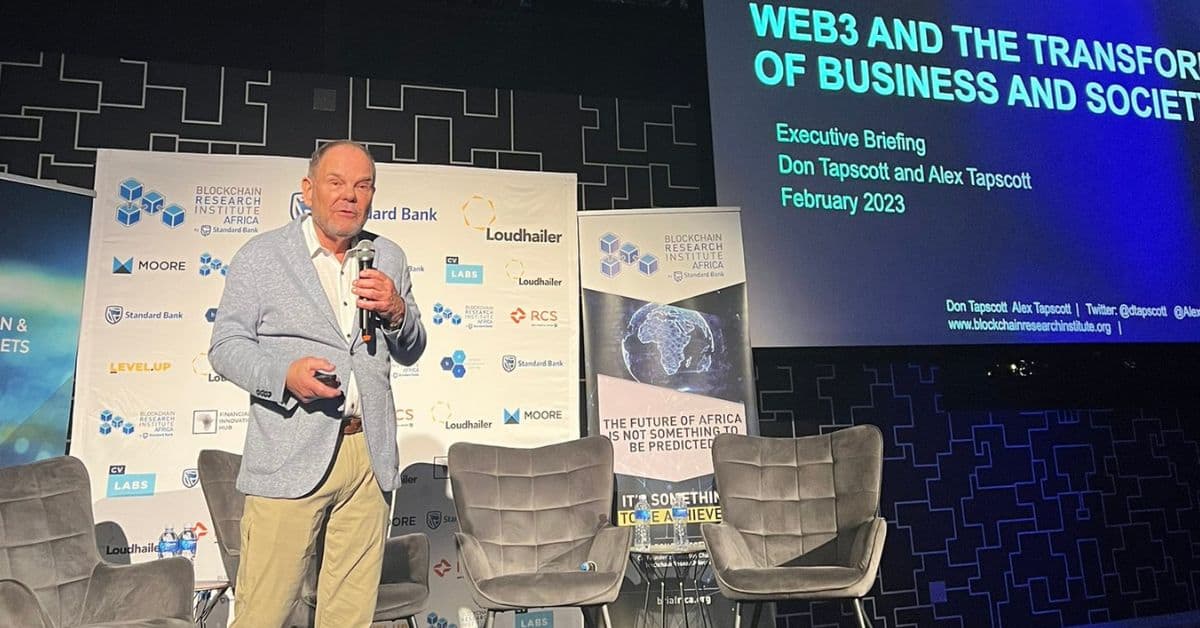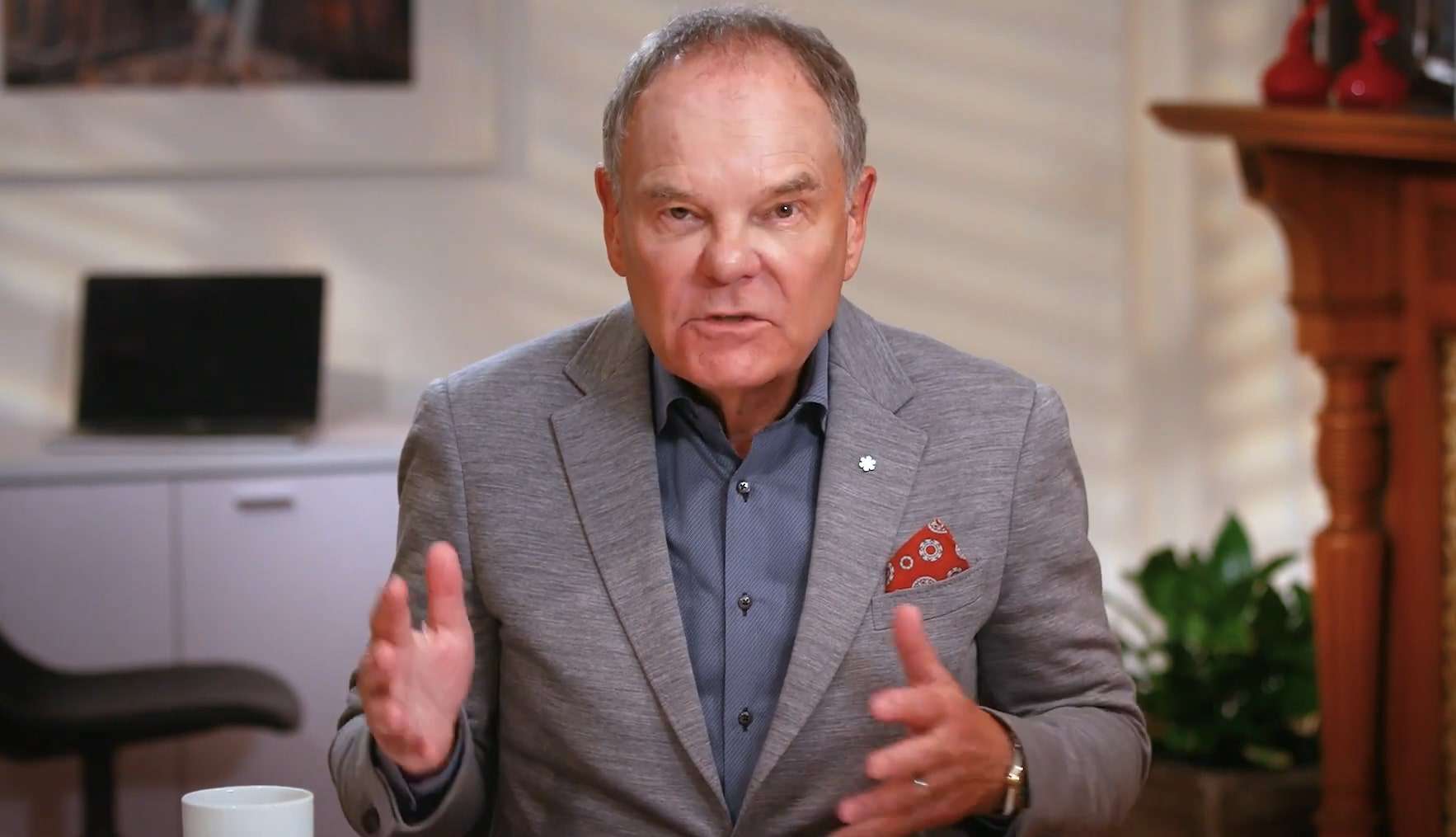Some of the privately funded blockchains have failed and in this information age news travels fast and people tend to see information only in the headlines and they think everything is failing. Failure of one platform is not the failure of all platforms, Don Tapscott, Co-Founder and Executive Chairman of the Blockchain Research Institute, Canada, told TRENDS in an exclusive interview at Davos.
He said there is a need for regulators to strike a balance between protecting investors and consumers on the one hand and creating the conditions for innovation on the other. Excerpts:
There is skeptical optimism regarding blockchain and crypto, how would you address this?
I think several factors have led to that. Skepticism has always been a part of these technologies, which challenge the established ways of doing things. When defined, this is basically software doing everything the banks can do. So, it is not surprising that some banks are concerned and skeptical about this technology. They need to work hard to find ways to avoid this intermediation. But we intermediate to create new value in the middle. The second factor, which is the shiny object here, has been crypto. Investing in crypto and the crypto stock market today will become uncoupled under certain conditions. But for now, we have gone back to witnessing crypto market crashes. It seems like whatever is introduced on the Internet starts crashing within two years before it stabilizes and there is widespread adoption.
The third factor is whether the implementation of the blockchain model is experiencing something similar to what happened with the information revolution 25 years ago—becoming a dangerous thing, insecure and full of pornography apart from being tied to the proprietary interests of companies.
At the time, there were concerns about when this will go away and eventually embrace the public trust. Similar things are happening today with blockchain. Some of the privately funded blockchains have failed and when in this information age news travels fast people see information only in the headlines and they think everything is failing. Failure of one platform is not the failure of all platforms. This is the first time I have said it this way and those words are golden [smiles].
So, there is a lot of clutter?
Sure. It is the fourth factor. There are bad actors, which is always the case in any new technology. An exciting new technology can be used for good or bad. The crypto market itself is like the Wild West.
There is chaos in the market and the dust rises with an episode of failure, for example, FTX.
An incident like FTX is hurtful to the whole image of the blockchain and crypto industry. If FTX was like any regular crime, then we have regulations and a legal system to handle such things but in these new examples of tech-led financials, the culprit is bad governance and a lack of solid regulatory frameworks.
If we had good corporate governance in this field the regulators would have accounted for any violations and there would be less mud on the windshield.
Most of these companies, Binance for example, operate in different jurisdictions with different names. While Binance is facing issues of compliance in the US, it is operating smoothly in other countries. How do you see this mismatch and how will the business progress?
It is a real problem; Whack-A-Mole, you hit one thing, it pops up somewhere else. And because we don’t have, and will not have in the foreseeable future, a global regulatory environment, there will be different regulatory structures within countries. Now, this doesn’t mean that a more repressive regulatory regime like that exists in the US, compared to Switzerland, for example, is the right idea. The regulators got to get the balance right between protecting investors and consumers on the one hand and creating the conditions for innovation on the other. It is a tough time to be a regulator to get that balance right.

Dubai is tipped to be the hub of blockchain and crypto. What is your company doing, what are the projects you have in mind and how do you see the region?
Dubai does not only inspire the world to embrace new financial instruments, but it has been a hub for digital financial products. It is very advanced in terms of the kinds of applications, the use of technology in the government and the attitude of most government regulators towards all of this, compared to other countries in the region, like Qatar. It is still struggling with extending all of this to Islamic finance. You know, how we make it halal so that it is okay. So, we’ve established partnerships in the GCC with Blockchain Research Institute of Canada and we’re in Dubai, Qatar, Abu Dhabi and Riyadh and we have a vibrant operation there and we are welcoming companies and governments to join blockchain research. We have a big education program over there and we’re also doing a lot of activities, helping companies and governments to move forward.
The GCC’s economy is in top gear and the leadership is promoting and embracing digital transformation. How do you see your institute and what are the opportunities for an institute like yours and other blockchain platforms?
We don’t necessarily go where things are most advanced, although we like to always be in a place where things are the most advanced. In the Middle East, that’s Dubai. Our clients tend to be very sophisticated as well, but we also like working with governments and companies that are starting their journeys. We have comprehensive programs for both.
On central banks adopting digital currencies, there is an opinion that while the banks are ready the people and the economies are not.
Well, I am not sure that central banks are ready somehow. This is not a simple thing. You know there is a case that a stablecoin like U.S.T.C can achieve many of the benefits of the Central Bank Digital Currency (CBDC) with a lot of costs and liabilities. Then there is a difference between retail and wholesale. The wholesale is a no-brainer. However, operations have become unconventional, but the database is still very traditional, so there is a mismatch.
Retail CBDC raises a whole set of complicated issues, but ultimately done right with proper design choices like remittance privacy, which is credible for these things to be accepted, they could be very powerful, especially if we could roll them up together globally into a basket of currencies where we could create what John Maynard Keynes was proposing, which is a global synthetic hegemonic digital reserve currency that would be a very powerful thing if it was done right. But if not done right, it would be a terrible thing.
What are the expectations from Davos?
I have been coming to Davos since the 1990s and I am not a captain of industry; I am a worker. So I am participating in panels and discussions and private leavings and so on, trying to be helpful to the World Economic Forum.








